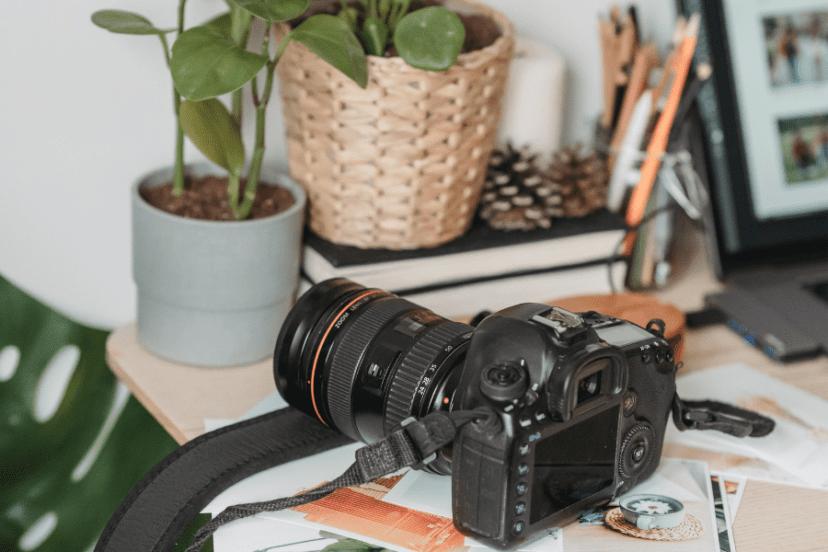Photography Hobby Review
Mastering the Art of Photography
Welcome to this photography hobby review, where we will delve into the world of photography as both a creative outlet and a potential income source. Photography is a captivating hobby that allows you to capture precious moments and express your artistic vision through images.
The exciting part is that it offers opportunities to turn your passion into a profitable venture.
In today’s digital age, there are numerous avenues available for photographers to monetize their skills and generate income. Whether you dream of selling your photos as stock images or providing photography services for events, there are essential factors to consider before embarking on this journey. By carefully evaluating these factors, you can maximize your success and enjoyment as a photographer. Let’s explore some key considerations that will help you make the most of your photography hobby.
Skill Development: Enhancing Your Photography Skills
Photography is a unique art form that combines technical proficiency with artistic vision. To excel in this creative pursuit and make the most of your photography hobby, it is essential to invest time and effort in developing and refining your skills. By continuously learning and improving, you can elevate the quality of your photographs, increasing their appeal to potential buyers or clients.
In this section, we will explore the key aspects of skill development in photography and discuss various resources and methods to enhance your abilities.
1. Technical Proficiency:
Becoming proficient in the technical aspects of photography is crucial for capturing stunning images. Familiarize yourself with your camera and its settings. Understand how to adjust exposure, aperture, shutter speed, and ISO to achieve the desired effects. Each camera model may have its unique features, so take the time to read the user manual and experiment with different settings.
2. Lighting Techniques:
Lighting plays a vital role in photography. Understanding how to manipulate light can dramatically improve the outcome of your images. Learn about different types of lighting, such as natural light, artificial light, and studio lighting. Experiment with different lighting setups and observe how they affect the mood, shadows, and highlights in your photographs. By mastering lighting techniques, you can create captivating and well-balanced compositions.
3. Composition Principles:
Composition refers to the arrangement of elements within a photograph. It involves understanding concepts such as the rule of thirds, leading lines, symmetry, and framing. By following these principles, you can create visually appealing and engaging images. Study the work of renowned photographers and analyze how they use composition to convey their message or evoke emotions. Practicing composition techniques will enhance your ability to capture compelling photographs.
4. Online Resources:
The internet is a treasure trove of knowledge and learning opportunities for aspiring photographers. Take advantage of online resources, such as photography websites, blogs, forums, and tutorials. Many websites offer free or paid courses that cover a wide range of photography topics, from beginner-level to advanced techniques. Participate in online photography communities to connect with like-minded individuals, share your work, and receive constructive feedback.
5. Workshops and Courses:
Attending workshops and courses can provide valuable hands-on learning experiences. Look for local photography workshops conducted by professional photographers in your area. These workshops often cover specific genres or techniques and allow you to interact with experts and fellow photography enthusiasts. Additionally, consider enrolling in photography courses offered by educational institutions or online platforms. These structured courses provide comprehensive learning materials and assignments to further develop your skills.
6. Practice and Experimentation:
One of the most effective ways to improve your photography skills is through practice and experimentation. Dedicate time to regularly capture images, exploring different subjects, environments, and lighting conditions. Challenge yourself to step out of your comfort zone and try new techniques or genres. Embrace both successes and failures as learning opportunities, and continuously push yourself to evolve as a photographer.
Skill development in photography is an ongoing process. As you progress, regularly assess your work, identify areas for improvement, and seek feedback from experienced photographers. By investing time and effort in honing your technical skills, understanding lighting, mastering composition, and utilizing available resources, you can enhance your photography abilities and take your hobby to new heights.
Equipment: Choosing the Right Tools for Photography
In the world of photography, having the right equipment is crucial for capturing high-quality images. While professional-grade cameras and lenses can be enticing, they may not always be necessary, especially for beginners. It’s important to consider your budget and make informed decisions about the equipment that will best suit your needs and skill level. In this section, we will delve into the essential equipment requirements for photography and provide guidance on how to enhance your workflow.
1. Camera:
The camera is the primary tool of every photographer. When selecting a camera, consider factors such as image quality, sensor size, resolution, and versatility. There is a wide range of camera options available, from compact point-and-shoot cameras to advanced DSLRs and mirrorless cameras. Research and compare different models, read reviews, and consider renting or borrowing cameras to get a feel for their features before making a purchase. Choose a camera that aligns with your budget and meets your specific photography goals.
2. Lenses:
The lens you use significantly impacts the quality and creativity of your photographs. Most cameras come with a standard kit lens, which is suitable for general photography. However, as you progress and explore different genres, investing in additional lenses can greatly expand your photographic capabilities. Wide-angle lenses are ideal for landscape and architectural photography, while telephoto lenses are excellent for wildlife and sports photography. Research different lens options and choose those that best complement your photographic style and interests.
3. Tripod:
A tripod is an invaluable tool for achieving stability and sharpness in your images, particularly in low-light situations or when capturing long exposures. Look for a sturdy tripod that can support the weight of your camera and lens. Consider factors such as height, weight, portability, and stability when selecting a tripod. This accessory is especially beneficial for landscape, architecture, and macro photography, where precision and stability are essential.
4. Memory Cards:
Investing in high-quality memory cards is crucial for storing and transferring your digital images. Look for cards with sufficient capacity and fast write speeds to accommodate your shooting needs. It’s recommended to have multiple memory cards to ensure you have enough storage space during photography sessions. Additionally, regularly back up your images to a reliable external storage device or cloud service to protect them from loss or damage.
5. Editing Software:
Post-processing plays a vital role in enhancing and refining your photographs. While there are several editing software options available, Adobe Lightroom and Adobe Photoshop are widely regarded as industry standards. Lightroom offers comprehensive tools for organizing, editing, and managing your image library, while Photoshop provides advanced editing capabilities for more intricate adjustments. Experiment with different software options and choose the one that aligns with your editing style and preferences.
6. Accessories:
Consider investing in other accessories that can enhance your photography experience. These may include extra camera batteries, lens filters (e.g., polarizing filters or neutral density filters), lens cleaning kits, camera bags or backpacks for safe transportation, and remote shutter releases for capturing long exposures or self-portraits. These accessories can make your photography outings more convenient and enjoyable.
As you progress in your photography journey and your skills and income grow, you can gradually upgrade your equipment. The most important aspect is to understand and master the equipment you have before considering more advanced gear. Focus on developing your skills and creative eye, as they are the foundation of great photography. With the right equipment and a deep understanding of its capabilities, you’ll be well-equipped to capture breathtaking images and unleash your artistic vision.
Building a Portfolio
A strong portfolio is crucial for showcasing your photography skills and attracting potential buyers or clients. Focus on creating a diverse collection of high-quality images that demonstrate your versatility and expertise. Develop a niche or specialty that sets you apart from other photographers. For stock photography, capture a range of subjects and concepts that have market demand. For event photography, showcase your ability to capture special moments and tell a story through your images. Regularly update and curate your portfolio to reflect your growth as a photographer.
Marketing and Promotion
To monetize your photography, effective marketing, and promotion are essential. For stock photography, research and join reputable stock photography platforms where you can submit your images for licensing. Optimize your images with relevant keywords to increase discoverability. For event photography services, create a professional website or portfolio showcasing your work, and utilize social media platforms to showcase your skills and attract potential clients. Networking with event planners, wedding venues, or local businesses can also help you establish valuable connections.
Customer Service and Professionalism
Whether selling stock images or offering photography services, delivering excellent customer service and maintaining professionalism is vital. Communicate clearly with clients, understand their needs, and strive to exceed their expectations. Respond promptly to inquiries, deliver images in a timely manner, and ensure your interactions are professional and courteous. Positive client experiences can lead to repeat business, referrals, and a solid reputation in the photography industry.
Conclusion
Photography is a rewarding hobby that can also serve as a source of income. By developing your skills, investing in suitable equipment, building a captivating portfolio, implementing effective marketing strategies, and delivering outstanding customer service, you can turn your passion for photography into a lucrative money-making venture. Embrace the possibilities, unleash your creativity, and enjoy the journey!
FAQs
1. Can I start a photography business without prior experience?
Absolutely! While prior experience can be beneficial, everyone has to start somewhere. With dedication, practice, and a willingness to learn, you can develop your photography skills and establish a successful business.
2. What types of photography can be monetized?
There are various avenues to monetize your photography skills, including stock photography, event photography, portrait photography, landscape photography, and product photography. Explore different options and find what aligns with your interests and strengths.
3. How do I determine pricing for my photography services?
Pricing can vary depending on your experience, location, niche, and the type of service you offer. Research the market rates in your area, consider your costs, and determine a pricing structure that is fair and competitive.
4. Is it necessary to have a professional camera to start a photography business?
While professional cameras can offer advanced features and better image quality, they are not a prerequisite for starting a photography business. Begin with a camera that fits your budget and upgrade gradually as your business grows.
5. How can I differentiate myself from other photographers in the market?
Find your unique style or niche that sets you apart. Develop a signature aesthetic or specialize in a particular genre of photography. Showcase your creativity, vision, and technical skills to stand out from the competition.
Photography is about capturing images and telling stories, evoking emotions, and connecting with your audience. Embrace the journey, continue learning, and enjoy the rewards of turning your passion into a successful money-making hobby!




